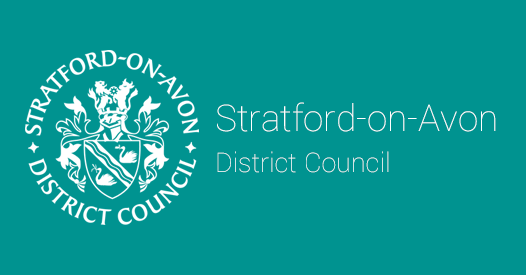Loss of Gas or Electricity
What is the risk of a loss of gas or electricity to Warwickshire?
National Grid operates the power network in Warwickshire. With hundreds of miles of cable, small disruptions are inevitable. However, most power cuts are fixed within an hour or so.
The UK’s power network has never completely failed. However serious outages have occurred abroad, such as the 2003 Northeast Blackout which affected 55 million people in eight US states and one Canadian province. Most locations saw power out for over a day, and some rural areas were without power for as long as two weeks.
The gas and electricity companies would be responsible for the practical and operational management of the incident. These companies have well-established plans and procedures in place to respond to incidents, which can range from the management of a local incident to a national level disruption.
Many parts of the infrastructure network are dependent on one another e.g. electricity is required at water pumping stations, to ignite domestic gas and oil boilers.
Gas failure at a local level is rare and tends to occur because of an accident (including accidents caused by third parties, such as water getting into the gas distribution system due to a burst water main), or technical failure of equipment. Gas failure at a regional or even national level is unlikely but may be caused by a failure of the gas transmission system.
Electricity failure can occur at a local level, across an entire region, or at a national level. The impacts of electricity failure events will vary with scale. Instances of electricity failure (also referred to as power loss or blackout) can have a number of causes including severe weather, infrastructure failure, and/or imbalance of supply and demand.
Rural areas are often the last to be reconnected when there is a disruption to utilities such as gas, water and electricity. During a wide-scale incident,people who live in the more rural areas of Warwickshire may be affected for longer than those in the larger towns.
How could a loss of gas or electricity
affect you and your property?
Gas and Electric are essential parts of our lives.
- Risk to life
- Health impacts on the elderly and vulnerable
- Loss of income
- Impact on ability to cook food
- Impact on communications
- Food poisoning risk
- Failure of medical equipment that requires a power supply
- Significant strain on responding organisations
We can all be better prepared to
respond and recover from loss of gas or electricity
Follow these practical steps so you and your family can be better prepared for a loss of gas or electricity.
Ensure you have access to a phone, such as a charged mobile phone or land line that doesn't rely on electricity to operate, and device chargers
It is recommended that people who may require additional support sign up to the National Grid Priority Service Register (PSR)
This includes: persons who have electrical medical equipment at home; learning difficulties; disabilities or young children. If you or a member of your family would be particularly vulnerable during a power cut, register as a priority customer with National Grid.
Make sure you know how to turn off your gas or electricity in an emergency
These could be in or outside of your property.
Create an emergency kit
This should include:
A portable battery-powered or wind up radio
Torches or battery-operated lights
Batteries
Copies of insurance and other important papers
Bottled water
Some tinned food
First aid kit
Ensure that any medication is accessible.
How to prepare
your business
To respond to a loss of gas or electricity
- If you experience a power cut, you can call ‘105’ to report it and get further information.
- Keep doors and windows closed, including internal doors. This will trap heat in one or two rooms.
- Block draughts by fitting draught excluders, or by rolling a towel and wedging it under your door.
- Dress warmly, layering up with cotton, wool or fleece. If it’s really chilly indoors you might benefit from outdoor clothes too, such as a coat, hat and scarf.
- Keep one light switch turned on so you know when the power returns.
- If you have neither gas or electricity, cook foods outside on a barbecue. Never use a barbeque inside a home, tent or caravan.
- Use foods that don’t require cooking, such as salad vegetables, tinned meats, breads and breakfast cereals.
For loss of gas, if in doubt call the National Gas Emergency Service number on 0800 111 999.
Although it may not directly relate to a loss of gas, if you smell gas inside a property there are several steps that you should take:
- DO turn off your gas supply at the gas meter. You are looking for the handle that is located near the gas meter. Turn the handle a quarter turn or 90 degrees across the gas pipe.
- DO open doors and windows to ventilate the property.
- Extinguish any naked flames such as cigarettes or candles.
- Call the National Gas Emergency Service number on 0800 111 999 to report it and get advice.
- DO NOT turn on or off any electrical equipment such as light switches.
- If the gas leak is in a cellar or basement, do not enter and instead evacuate the building.
Find your emergency contacts for loss of gas or electricity
How to recover from a loss of gas or electricity
Do not refreeze any defrosted food this can cause food poisoning.
In the case of a loss of gas, DO NOT simply turn on your own gas supply. A gas emergency engineer will visit every property to complete the safety checks required to turn a property’s gas supply and check gas appliances. Should further work need to be done on your gas appliance, a Gas Safe engineer will need to be called.
What can you do to support your Community?
What is being done to become
better prepared?
We work together to:
- Manage supply interruptions with utility companies.
- Produce multi-agency plans to manage long-term utilities outages, and protect essential services.
- Identify vulnerable people impacted when an emergency occurs to ensure the right support is provided in the event of utilities outages.
National Grid has well-developed plans to reconnect power supplies in the event of widespread power cuts.
Who is responsible for managing
a loss of gas or electricity in the county?
Loss of critical infrastructure - power cut
Further resources
Are you signed up to receive flood warnings? If not call Floodline on 0345 988 1188 to see if your area receives warnings.
Fire Risk Assessment Templates
In order to comply with the Regulatory Reform (Fire Safety) Order 2005, you must complete a Fire Risk Assessment of your stall or unit.
Some of our partners














